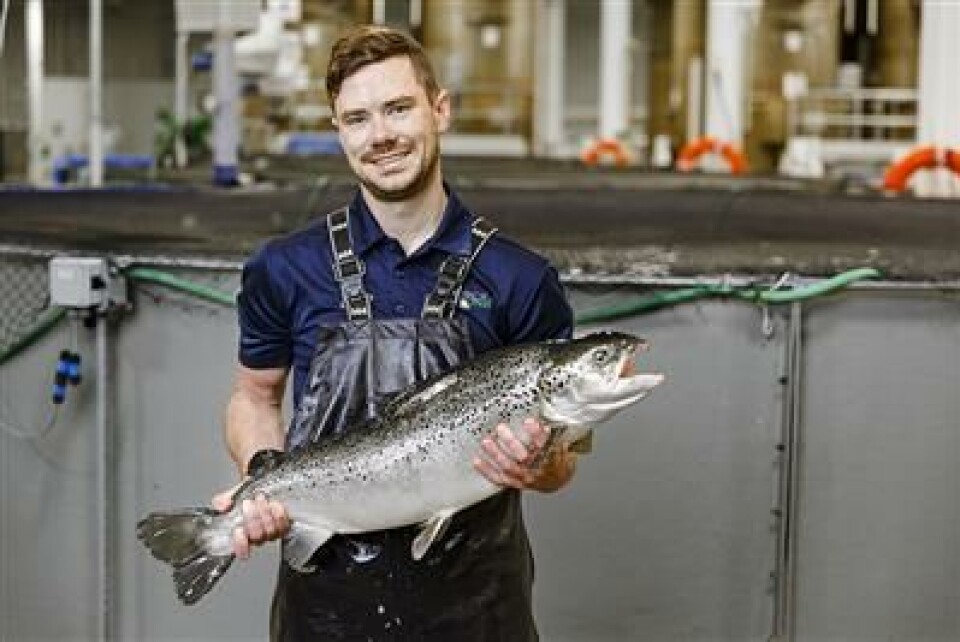
Land-based fish farming research gets a boost
US salmon-and-salad producer Superior Fresh is to take part in a two-year research project focusing on the health and flavour of fish grown in land-based recirculating aquaculture facilities.
“Overcoming barriers to support the growth of land-based Atlantic salmon production in the Great Lakes region” will receive a budget of $773,000 from federal and non-federal sources.
“Land-based salmon aquaculture is growing by leaps and bounds in North America,” said project leader Greg Fischer, of the University of Wisconsin-Stevens Point Northern Aquaculture Demonstration Facility (NADF).
“This research study is very exciting because it is really going to help the industry. We are working in close concert with private partners that are doing this type of aquaculture right now.”
Partnerships
Wisconsin aquaponics company Superior Fresh will be conducting some research and will provide fish at various life stages to aid the research.
Some land-raised salmon can have an “off” or musty flavour, and if consumers are to choose land-farmed fish, it must have a “flawless” flavour profile, say the researchers.
“This project will help to ensure that Atlantic salmon harvested have the very best flavour profile: succulent, buttery-rich and mild,” said Superior Fresh chief science officer Steve Summerfelt.
“We use a state-of-the-art recirculating aquaculture system technology in a ‘fish house’ and connected hydroponics greenhouse to produce micro-greens, baby greens, head lettuce, steelhead and Atlantic salmon year-round while recycling 99.9% of the (water and nutrient) flow.”
Guidance
Egg supplier Riverence/Evaqua will be providing salmon eggs required for research from its Washington state broodstock facility.
Superior Fish and Riverence/Evaqua will provide guidance and will be involved in the final scientific conclusion resulting from the study.
The West Virginia-based Conservation Fund Freshwater Institute, where Summerfelt worked for many years before joining Superior Fresh, will study the common occurrence of fungus (saprolegnia) that occurs in both farmed and wild fish.
Currently, the aquaculture industry in Wisconsin is worth $21 million, although the work of the public-private research team will have impact well beyond the state.
“We expect to publish a myriad of papers out of this (research study),” concluded Fischer, “and it will help the industry as a whole.”
Read more about the project here.




















































